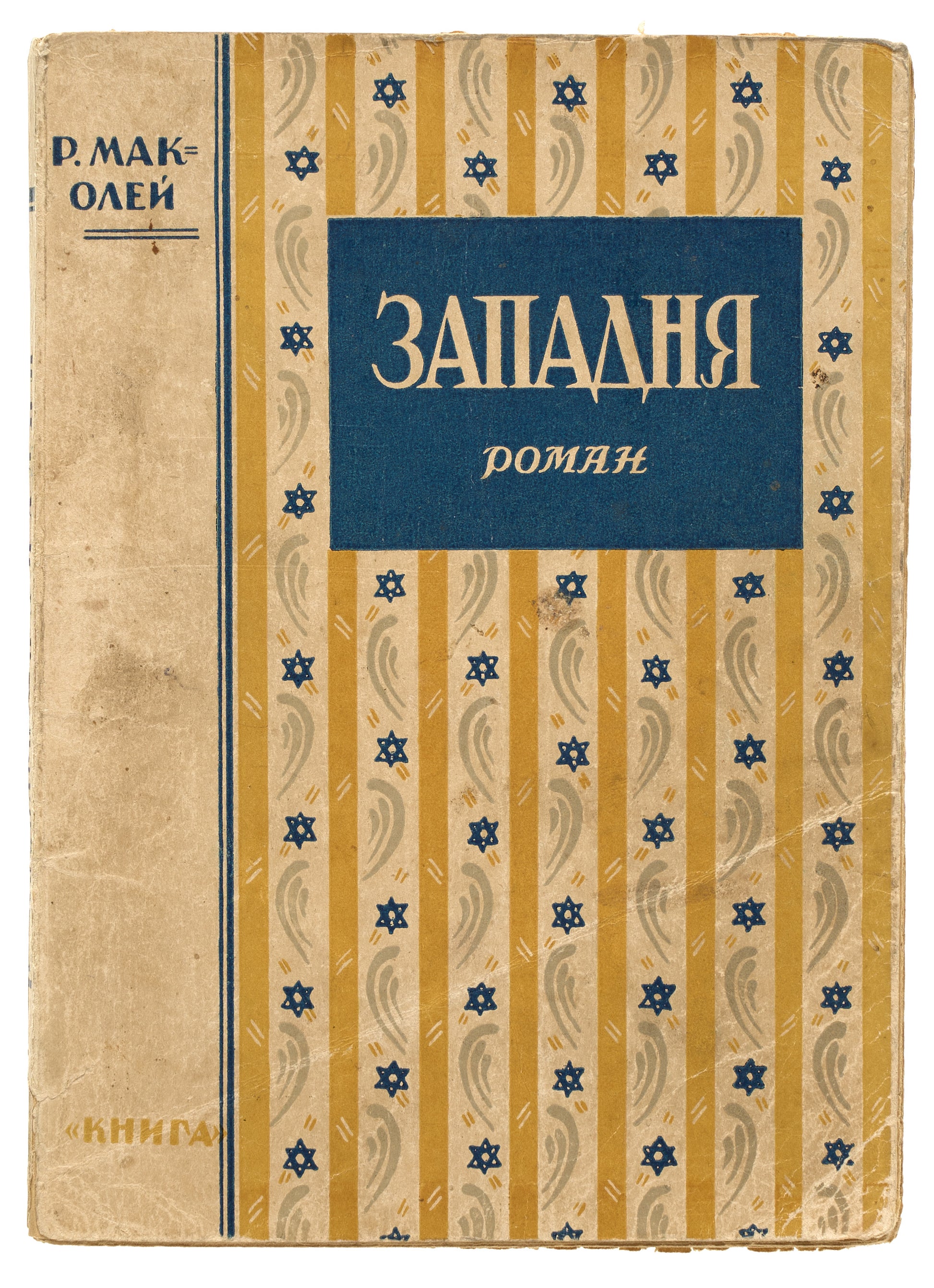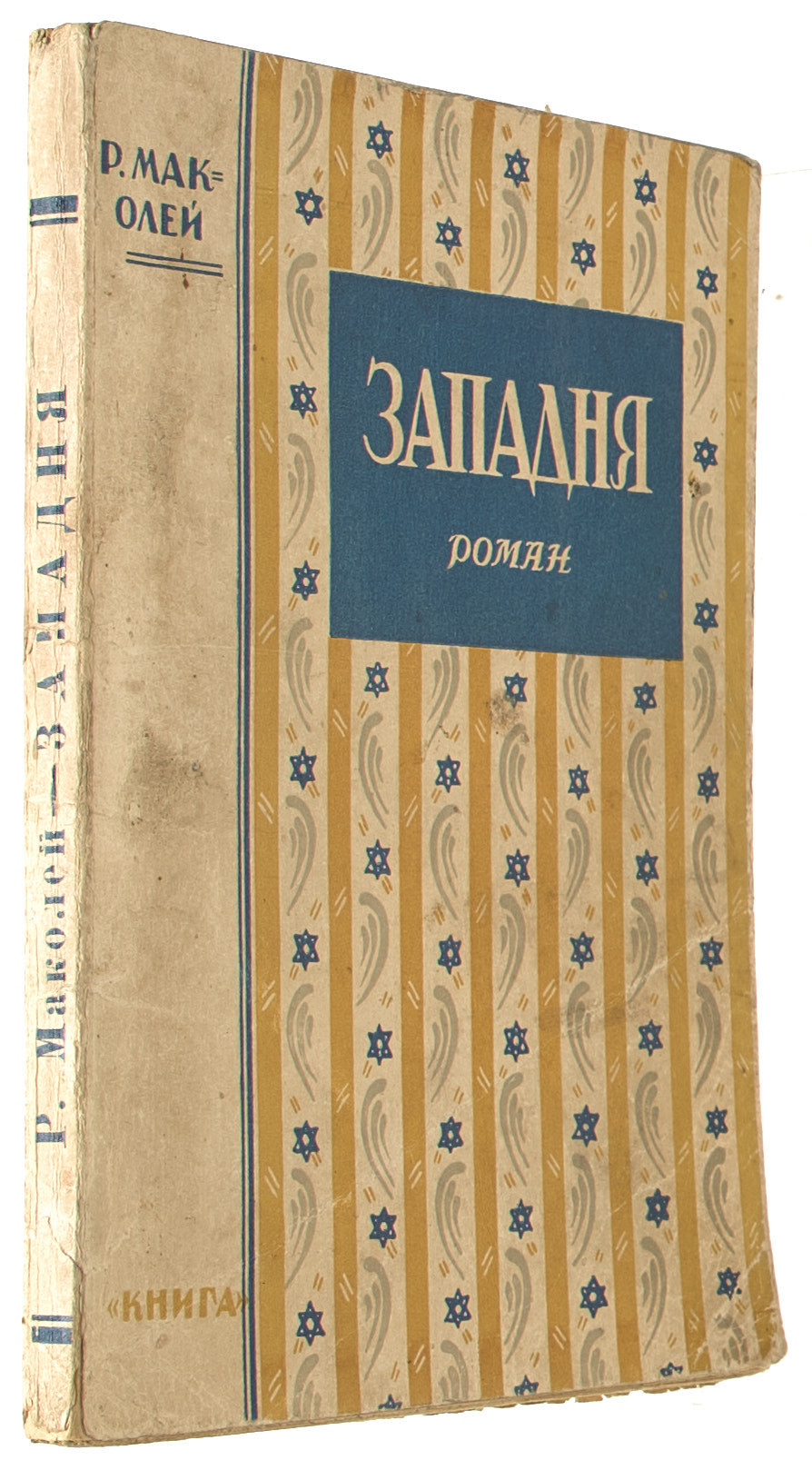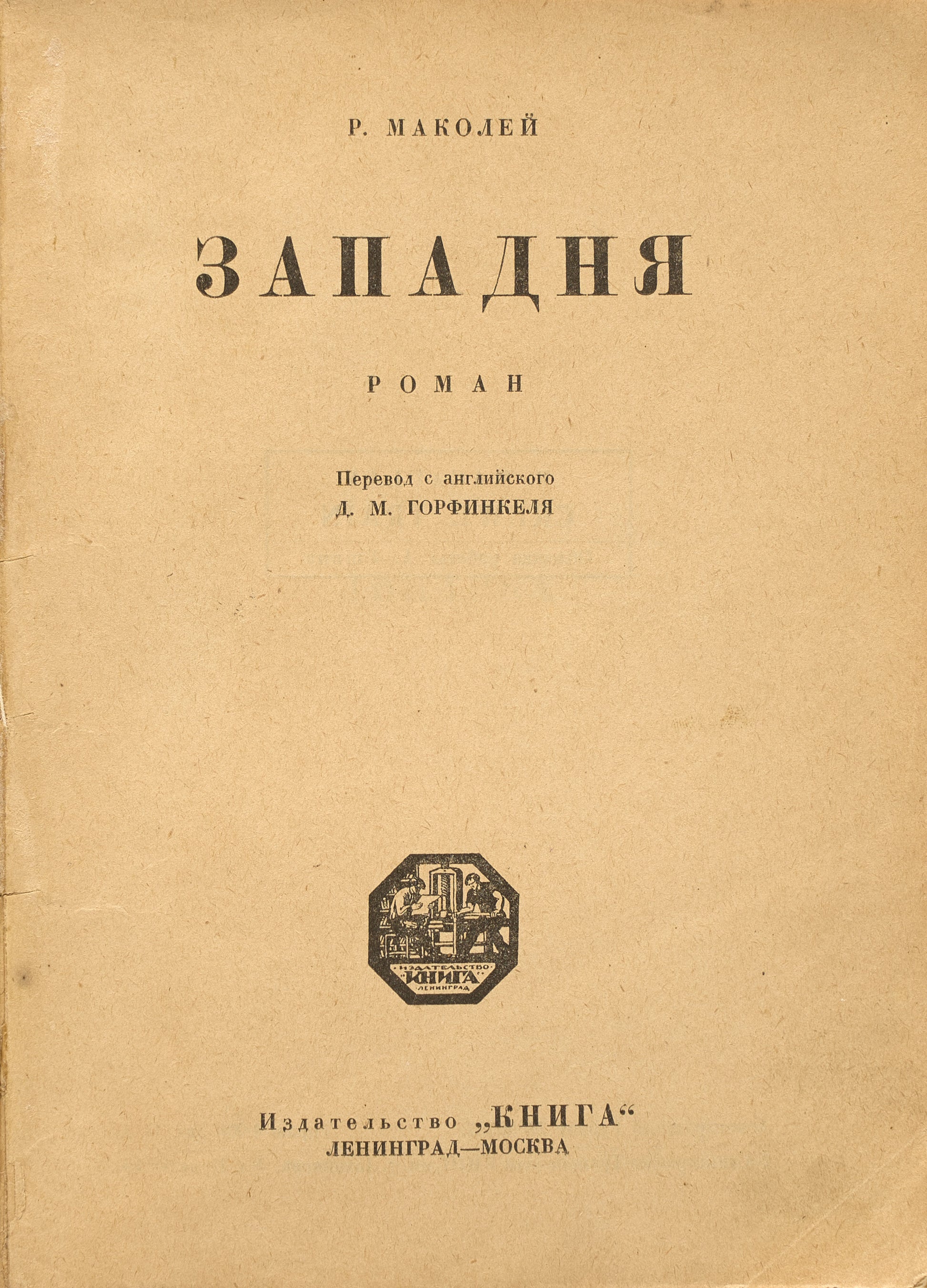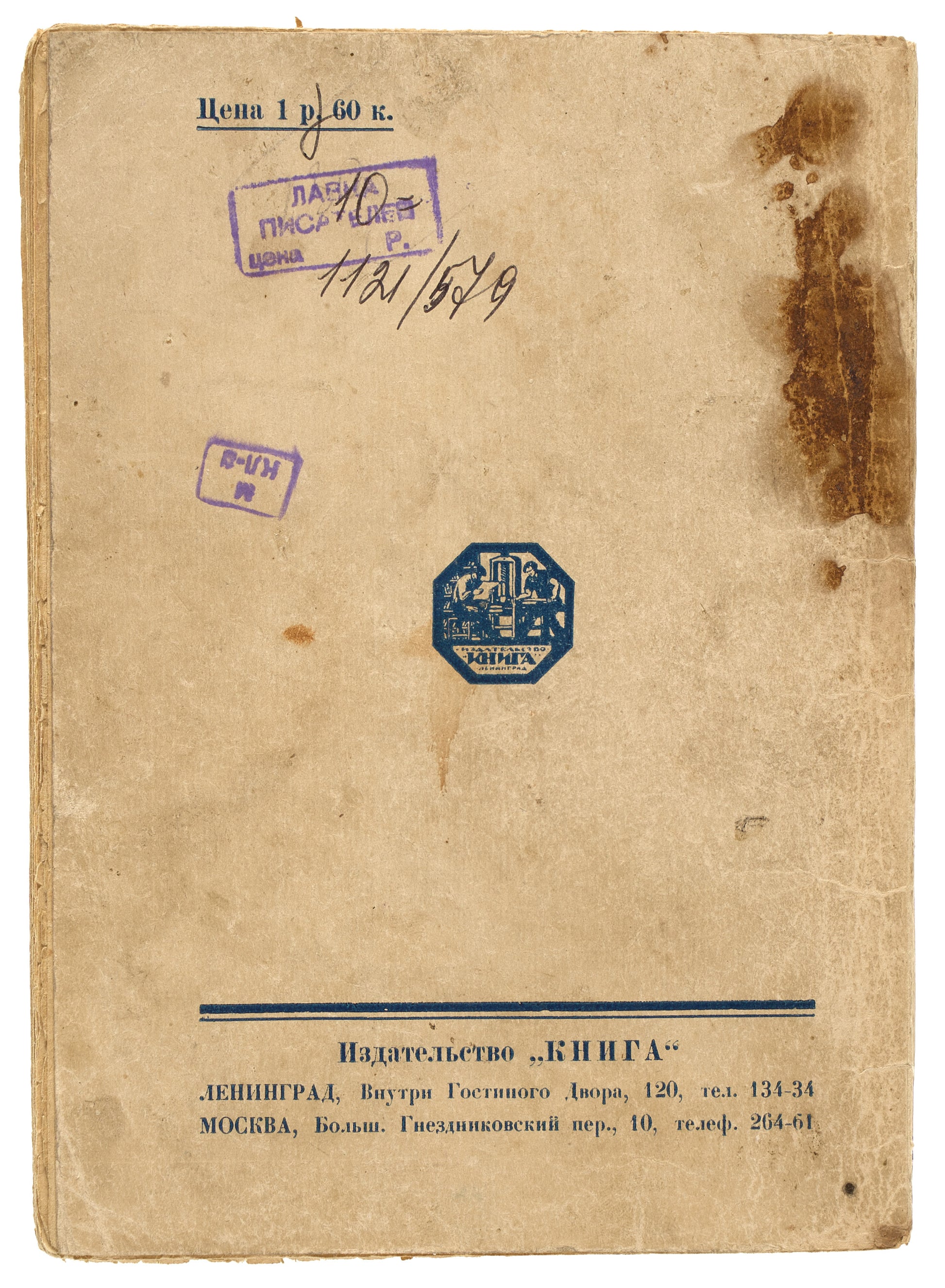Macaulay, Rose
Crewe Train. The only Russian translation.
Crewe Train. The only Russian translation.
Couldn't load pickup availability
Macaulay, Rose [Crewe Train: A novel]. Zapadnia: Roman.
Translation by D. Gorfinkel’.
[Cover by A. Ushin].
Leningrad-Moskva, Izdatel’stvo “Kniga”, [1927].
8vo, 220, [2] pp.
In original pictorial wrappers.
In good condition, lightly rubbed and soiled, traces of creasing to front cover, neatly repair to spine end, stains to back cover, scattered foxing, short tears to some page edges..
The only Russian translation. Second and last Macaulay's book in Russian. One of 4 200 copies published.
The first Russian translation of a book by Rose Macaulay (1881–1958)—an English writer influenced by Virginia Woolf and also known for her biographies, travelogues, and poetry—appeared in 1926 with the publication of ‘Orphan Island’. The following year, two more of her works were published in Russian: a new translation of ‘Orphan Island’ and the first and only Russian translation of ‘Crewe Train’ (1926). Despite the fact that these books were translated soon after their original publication, they remained the only works by Macaulay available in Russian. As a result, she has remained almost unknown to Russian readers.
According to an article on Macaulay in ‘Literaturnaia Entsiklopediia’ (‘Literary Encyclopedia’), Soviet critics believed that she ‘expressed the moods of the radical circles of the English petty-bourgeois intelligentsia, and the psychological focus and aestheticism of her early works were highly characteristic of the post-Versailles 'period of stabilization'’. While ‘Orphan Island’ was described as ‘a talented, sarcastic novel, a pamphlet against the morality of English society’ and seen as ‘a flash of radicalism’, it was noted that later Macaulay ‘returned to her earlier psychological focus, becoming even more distanced from reality’.
The translation was prepared by Daniil Gorfinkel’ (1889–1966), a poet, editor, and translator who was initially trained as an engineer but began teaching and translating from English, French, and German in the 1920s. He was also a member of the literary group ‘Zvuchashchaia Rakovina’ (‘The Sounding Shell’) under the leadership of Nikolai Gumilev, co-founder of the Acmeist movement, whom Gorfinkel’ considered his mentor. Gorfinkel’ translated works by Jack London, Theodore Dreiser, H. G. Wells, Stefan Zweig, Thomas Mann, Friedrich Schiller, Heinrich Heine, and more.
A beautiful book design was created by Alexey Ushin (1904–1942), a graphic and book artist who tragically died during the Siege of Leningrad.








